Radisson Hotel, Lagos, Nigeria — May 7, 2025. The member states of the Federation of State Gaming Regulators of Nigeria (FSGRN) have formally signed the Subnational Reciprocity Licensing Framework, marking a historic milestone in the evolution of Nigeria’s gaming regulatory ecosystem. The signing ceremony, held on May 7, 2025, at the Radisson Hotel in Lagos, brought together gaming regulators from across the country under the auspices of the FSGRN.
The agreement establishes a unified framework for obtaining licenses for the operation of Online Sports Betting, Online Casino, Public Online Lottery, and Promotional Competitions across member states. It eliminates duplicative licensing burdens, enhances regulatory coordination, and fosters a more coherent, investor-friendly environment for operators seeking to do business within Nigeria.
Any intending operator will now only have to obtain a single “Universal Reciprocity Certificate” (URC), which authorizes operations across all member states of the federation. As the FSGRN stated, “One License covers all member states.”
As part of the transitional measures under the framework, all operators previously licensed either by the now-proscribed National Lottery Regulatory Commission (NLRC) or the respective member states are required to apply for the URC through the Secretariat of the FSGRN. However, in a move aimed at supporting continuity and acknowledging previous regulatory disruptions, the FSGRN has announced a full waiver of 2025 license fees for these transitioning NLRC-licensed operators provided they meet the requirements of the FSGRN. These operators will instead be required to renew and pay requisite license fees from January 1, 2026.
Related Articles
Speaking at the signing event, the Chairman of the FSGRN and Chief Executive Officer of the Lagos State Lotteries and Gaming Authority stated, “This initiative underscores our collective commitment to true federalism, regulatory integrity, and economic pragmatism. With this reciprocity framework, we are creating a level playing field, upholding constitutional order, and enabling a more predictable operating environment for responsible gaming operators with utmost respect for the autonomy of respective states enshrined in the constitution.”
While this development is historic for Nigeria, it mirrors established practices in several federal jurisdictions around the world. Similar reciprocity-based or multi-jurisdictional licensing frameworks exist in countries such as the United States, where compacts between states support cross-border gaming operations; Canada, through provincial agreements; Germany, under the Interstate Treaty on Gambling; Switzerland, via the Intercantonal Gambling Concordat; and India, where various states recognize certain forms of regulated gaming activities under cooperative arrangements. These international examples affirm that Nigeria’s approach is consistent with global best practices in multi-level gaming regulation.
Micheal Eja, Director General of the Cross-Rivers Lotteries and Gaming Agency, stated, “This framework reflects the spirit of inter-state collaboration that has long been missing in our regulatory space. It is a bold statement that Nigeria’s federating units can work together to simplify processes without compromising oversight or accountability.”
Olajide Boladuro of the Oyo State Gaming Board (OYSGB) noted, “The Universal Reciprocity Certificate will remove unnecessary barriers to entry for licensed operators and help foster a more vibrant and competitive gaming sector across states. It’s a win for innovation, investment, and the rule of law.”
Lami Bello, Director, Emerging Tax Department at the Taraba State Internal Revenue Service, added,
“For years, operators have been caught in a web of overlapping requirements. This framework replaces that confusion with clarity and consistency, while ensuring that each state retains its constitutional authority to regulate gaming within its borders.”
This framework is designed to support innovation, protect consumers, and promote state-level revenue generation without compromising cross-border operational flexibility. Operators under the new license will benefit from harmonized compliance standards, streamlined reporting protocols, and access to a broader market within a lawful, state-led system.
The waiver of 2025 licensing fees for NLRC-licensed operators is effective immediately, and applications are now open through the Secretariat of the FSGRN.
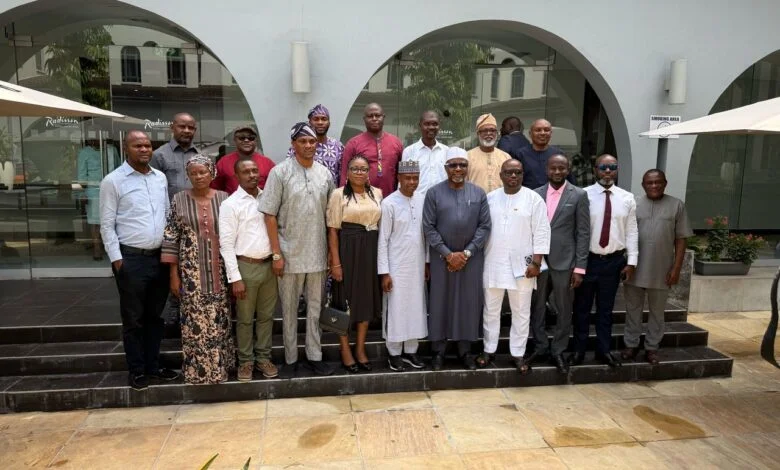
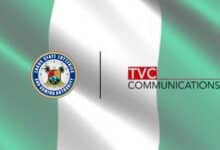 Lagos State Lotteries and Gaming Authority Signs an MoU with TVC Communications
Lagos State Lotteries and Gaming Authority Signs an MoU with TVC Communications 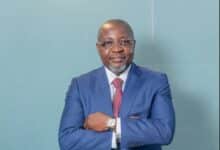 Exclusive: From Compliance to Innovation: Exploring the Dynamics of Nigeria’s Gaming Landscape with Bashir Are
Exclusive: From Compliance to Innovation: Exploring the Dynamics of Nigeria’s Gaming Landscape with Bashir Are 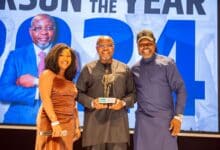 Mr. Bashir Are Honored as “iGaming AFRIKA Choice; Person of the Year 2024” at AGE Lagos 2025
Mr. Bashir Are Honored as “iGaming AFRIKA Choice; Person of the Year 2024” at AGE Lagos 2025 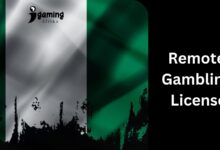 No Remote Gambling Licenses Exist in Nigeria – Lagos State Lotteries and Gaming Authority
No Remote Gambling Licenses Exist in Nigeria – Lagos State Lotteries and Gaming Authority